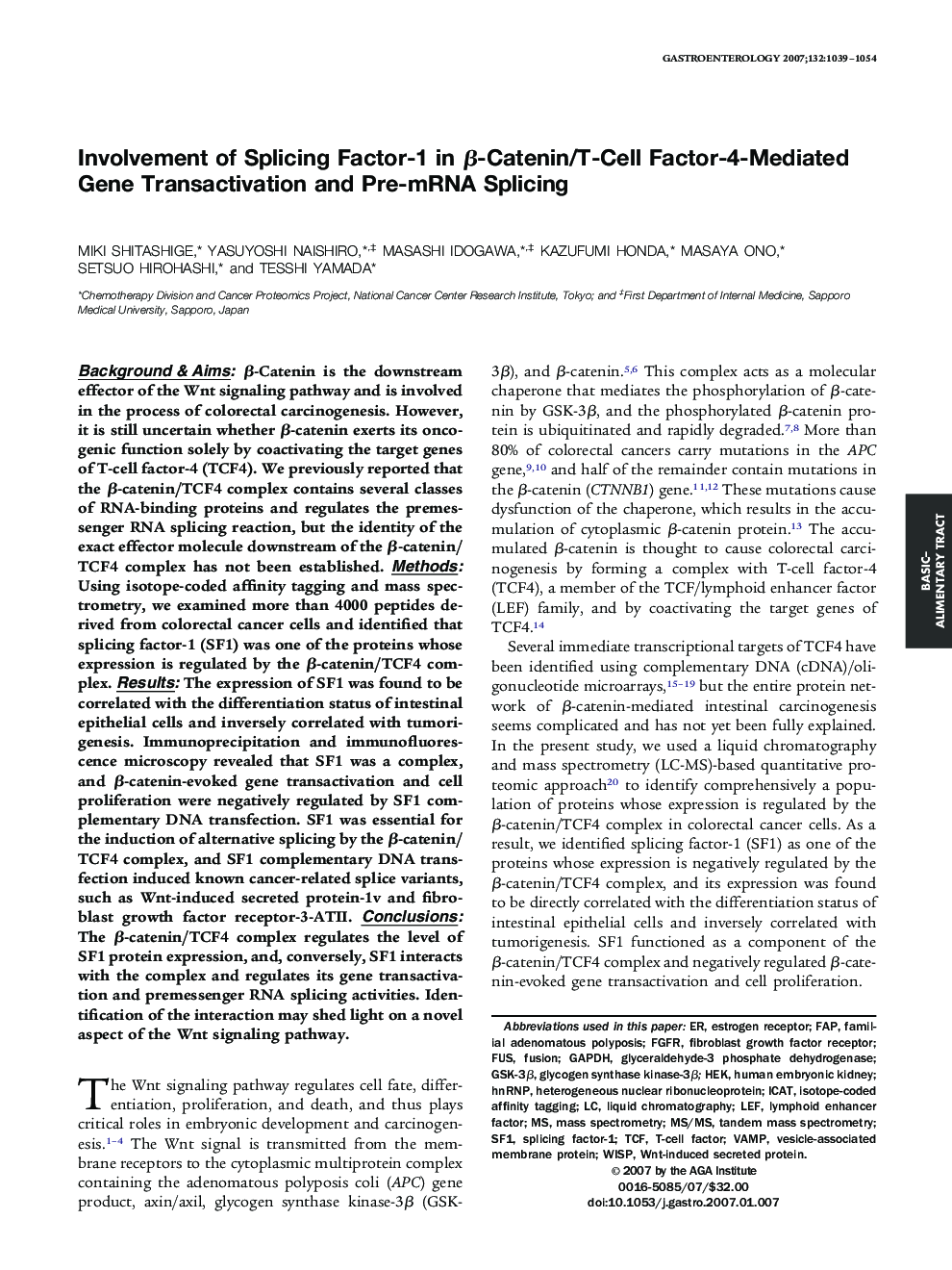| Article ID | Journal | Published Year | Pages | File Type |
|---|---|---|---|---|
| 3299391 | Gastroenterology | 2007 | 16 Pages |
Background & Aims: β-Catenin is the downstream effector of the Wnt signaling pathway and is involved in the process of colorectal carcinogenesis. However, it is still uncertain whether β-catenin exerts its oncogenic function solely by coactivating the target genes of T-cell factor-4 (TCF4). We previously reported that the β-catenin/TCF4 complex contains several classes of RNA-binding proteins and regulates the premessenger RNA splicing reaction, but the identity of the exact effector molecule downstream of the β-catenin/TCF4 complex has not been established. Methods: Using isotope-coded affinity tagging and mass spectrometry, we examined more than 4000 peptides derived from colorectal cancer cells and identified that splicing factor-1 (SF1) was one of the proteins whose expression is regulated by the β-catenin/TCF4 complex. Results: The expression of SF1 was found to be correlated with the differentiation status of intestinal epithelial cells and inversely correlated with tumorigenesis. Immunoprecipitation and immunofluorescence microscopy revealed that SF1 was a complex, and β-catenin-evoked gene transactivation and cell proliferation were negatively regulated by SF1 complementary DNA transfection. SF1 was essential for the induction of alternative splicing by the β-catenin/TCF4 complex, and SF1 complementary DNA transfection induced known cancer-related splice variants, such as Wnt-induced secreted protein-1v and fibroblast growth factor receptor-3-ATII. Conclusions: The β-catenin/TCF4 complex regulates the level of SF1 protein expression, and, conversely, SF1 interacts with the complex and regulates its gene transactivation and premessenger RNA splicing activities. Identification of the interaction may shed light on a novel aspect of the Wnt signaling pathway.
